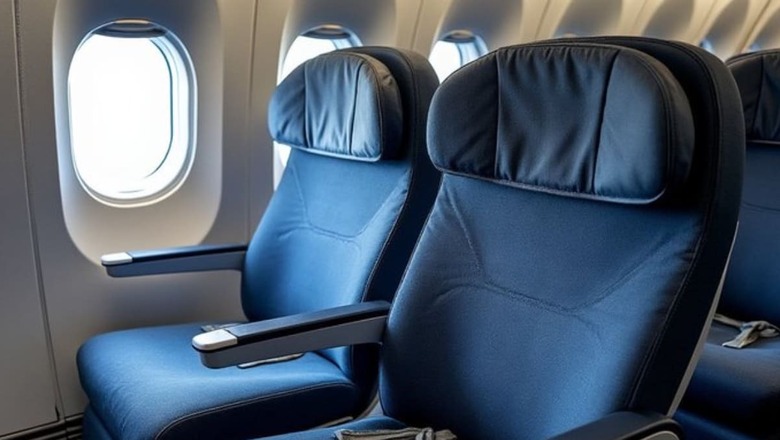
views
It’s not only in your head, air travel can make some parts of your body feel weird. The cabin’s fluctuating pressure, temperature, oxygen levels and lower humidity can disrupt your body’s regular functions. Dr. Sudipta, a Jaipur-based physician, has pointed out that flying can lead to symptoms like diarrhoea, vomiting and severe stomach discomfort. Even if you steer clear of airline food, Dr. Sudipta explains the underlying causes and offers tips for staying healthy while travelling.
On X (formerly Twitter), Dr. Sudipta shared that he often hears from patients who, after flying the previous day, experience symptoms such as vomiting, diarrhoea and severe abdominal discomfort.
“In the course of my practice, I often get to hear this common complaint – Doc, I travelled by flight yesterday, and today I have diarrhoea, vomiting and a bad stomach ache. I ask them – did you have any food in the flight? The answer is often ‘no’. So, is there any other reason? And can air travel make you sick?” he wrote.
In the course of my practice, I often get to hear this common complaint – Doc, I travelled by flight yesterday, and today I have diarrhoea, vomiting and a bad stomach ache. I ask them – did you have any food in the flight? The answer is often ‘no’. So, is there any other… pic.twitter.com/nVl14VuLyf
— Sudipto (@SudiptoDoc) August 19, 2024
Answering his own question, Dr Sudipto says, “Yes. Airline travel can make you sick.” He emphasises that not following basic hygiene precautions might lead to illness on any public transportation.
The doctor cited undisclosed studies to support his claim that it has been demonstrated time and time again that frequently used surfaces such as armrests, tray tables, seatbelts and aircraft seats are harbouring various germs that might potentially cause illness.
“The water in paper cups that the stewardesses and stewards so graciously offer you with a smile, too is not above suspicion”, Dr Sudipto further said.
He gave an explanation of why extensive cleaning is not possible, citing the short turn-around time between flights. Moreover, employees are unable to thoroughly clean the contaminated regions.
According to the doctor, “Fabric seats” in particular have a tendency to retain moisture and trap it, which increases the likelihood of bacteria and viruses growing on them.
He noted that a person’s back and headrests may be exposed to sweating, especially after boarding in humid climates.
Dr. Sudipto cited several studies to support his claim that germs might spread quickly among people seated near one another.
So what’s the solution? The doctor recommended carrying hand sanitiser with you at all times and using it as soon as you board the aircraft, once throughout the journey, and every time you get off.
The same applies to travelling by other public transport, he says.
As per the doctor, it is insufficient to just wash your hands if you must use the loo. Hence, when you get back to your seat, make sure you apply hand sanitiser.
In addition, he advises against consuming food and beverages on plane that are served in paper cups, especially on shorter domestic flights.
“Buy a bottle of water if you are really thirsty.”
It is advised to use disinfectant wipes to clean the tray table surface, hand rests, buckles, and seat during extended flights.




















Comments
0 comment